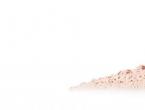Calendar of fasting and meals. Calendar of fasts and meals What date does the summer fast begin?
How to eat right on Christmas fast 2018-2019, when you can eat fish, and when you can't, our food calendar for the days of fasting before Christmas will tell you.
When the Nativity Fast begins 2018 - 2019
The Nativity Fast is also called the Filippov Fast, since the spell on it falls on the feast day of the holy Apostle Philip - November 27 in a new style. This is one of four multi-day fasts in Orthodoxy, it prepares believers for the Bright Feast of the Nativity of Christ, which is celebrated on January 7th. The Orthodox Nativity Fast begins on November 28 and lasts until January 6.
Like other long-term fasts, the Nativity Fast has been observed in Orthodoxy since ancient times. The first mentions of him are found in the writings of Saint Ambrose of Mediodalan in the fourth century.
Eating on the Nativity Fast: what they eat and what they don't
It is believed that the Nativity Fast is less strict than fasting and fasting. So, on Tuesday, Thursday, Saturday and Sunday you can eat food with vegetable oil. On the days of the Nativity Fast, it is strictly forbidden to eat only meat, eggs and dairy products. On Wednesdays and Fridays, one should not drink wine, and food must be eaten without oil - this is called dry eating.
But it is worth remembering that the sick and children are allowed to relax physical fasting.
Fish days of Christmas fast 2018 - 2019
Fish during the Nativity Lent is allowed on Saturdays and Sundays and great holidays, for example, on the Feast of the Entry into the Temple of the Most Holy Theotokos, as well as on temple holidays and on the days of the great saints, if these days fall on Tuesday or Thursday. According to the mildest statute, fish can be eaten on all days except Wednesday and Friday.
The meal schedule below will help you keep the Nativity Fast in accordance with all the rules of the Orthodox Church. But we must remember that any fast is not a diet, the main thing is spiritual severity and purification of the soul.
Food Calendar by Day for Christmas Fast 2018 - 2019
Wednesday 28 November - The beginning of the Nativity Fast - Monastic Charter: hot food without oil.
December 4, Tuesday, Entry into the temple of the Most Holy Lady of our Theotokos and Ever-Virgin Mary - Fish allowed.
Fasting and New Year. Orthodox Christians on New Year's Day should not leave the fast, but they should not condemn relatives and friends who do not fast either. Put on the New Year's table both lenten and modest dishes in order to maintain peace in the family and not to turn the household away from the faith with your condemnation - the priests advise.
What you can eat on Christmas Eve. The last day of the Nativity Fast is called Christmas Eve. This word comes from the name of the dish - soothing. Juice is made from wheat, lentils or rice. According to the church charter, it is eaten on the evening of January 6 after complete abstinence from food throughout the day.
January 7, Monday, the Nativity of our Lord and Savior Jesus Christ - No Fast.
Before Christmas, the strictest fast of many days is observed. With the help of the food calendar, you can correctly plan the menu and find out what dishes you can treat at this time.
The Nativity Fast falls on the period from November 28, 2018 to January 6, 2019. Since Wednesday, Orthodox people will make significant changes to the food menu, removing many of the usual foods from it. The ban is imposed on meat, eggs and dairy products. On acceptable days, you will be able to indulge in seafood and wine, but you should check the food calendar to find out when indulgences are allowed.
The site's specialists will tell you about all the features of the Nativity Fast so that you can prepare for this period and not violate the main rules and prohibitions.
November 28. The strictest fasting begins. On Wednesday we eat only vegetable products without oil. You can also eat various vegetables, bread products, honey, nuts, fresh and dried fruits.
29th of November. The main dish is fish. Seafood and any fish dishes are acceptable. Boiled fish, sauerkraut, rice porridge. In addition, you can drink coffee, cocoa. Between meals, you can gnaw nuts, eat fruits, especially apples.

November 30th. Only uncooked lean food is used: lean buns, raw vegetables, nuts, honey, dried fruits and berries.
December 1 and 2. Fish is introduced as the main course. It is not forbidden to eat a variety of fish products.
December 3rd. Time for hot dishes not flavored with oil: cereals, stewed vegetables, light dietary soups, dishes with mushrooms. A good solution would be oatmeal in the water. Porridge can be supplemented with chopped apples, walnuts and poppy seeds. As a dessert - oatmeal cookies, tea with lemon.
December 4th. The Orthodox holiday of the Entry into the Temple of the Most Holy Theotokos is celebrated. On this day, it is allowed to treat yourself to fish and seafood products. Be sure to prepare dried fruit compote and lean pilaf with mushrooms. Homemade crackers are useful. As a sweetness - drying and jam.
5th of December. Xerophagy. It is allowed to eat only food of plant origin without oil, as well as water, fruits and vegetables in their raw form, honey, dried fruits, nuts, herbal teas and herbal teas.
December 6. You can serve a variety of fish and seafood dishes. Prepare pea soup: it is advisable to throw in all the ingredients fresh. You can add apple compote to the table.
December 7. On this day, only uncooked food is consumed. The main course is vinaigrette and herbal drinks.
December 10. Hot meals without oil: soups, cereals, boiled vegetables, fruits, mushrooms. You can serve a light vegetable soup, stewed cabbage with mushrooms. As a dessert, a lean bun and berry compote.
December 11th. The day when it is not forbidden to get enough of fish dishes. Steamed fish cutlets and boiled potatoes are a great solution for Tuesday.
12 December. Xerophagy. It is not forbidden to eat plant products: fruits, vegetables, and dried fruits.
December 13th. Pamper yourself with seafood, fish. Be sure to include new fish dishes in your diet. This is necessary in order for the body to be present with useful substances and vitamins.
December 15, 16. You can treat yourself to any fish dishes. Make a kebab with vegetables and fish. Make tea with a lemon wedge as a drink.
December 17. The weekend is over, which means that oil is once again becoming forbidden. Porridge, soups, boiled and stewed vegetables are allowed.
December 18. You can add fish products to the diet. The use of oil is also possible. You can cook boiled potatoes, beans, pasta for yourself. As a snack, you can get winter preparations from mushrooms, tomatoes, peppers and cucumbers.
December 19th in the Orthodox calendar is listed as the day of memory of St. Nicholas the Wonderworker. Fish is allowed, wine and oil are prohibited.
20th of December. You can taste vegetable and boiled foods, as well as butter. Diversify your diet with lean pancakes, apple or berry compote, porridge with butter or mushroom pilaf.
21 December. On Friday, foods that have undergone heat treatment are prohibited. You can eat bread products, dried fruits, uncooked vegetables, nuts. It is advisable to drink more water, as well as tea with the addition of honey and lemon.
December 22, 23. It is allowed to cook fish with the addition of vegetable or olive oil. For lunch, you can make wheat soup with fish balls. As an appetizer - a light salad of cabbage, onions, carrots and tomatoes, seasoned with lemon juice. Instead of water, it is better to drink berry jelly.
December 24, 25. Hot food without oil is allowed at the beginning of a new week. Porridge, soups, stewed vegetables - all of this contains many vitamins that the body needs in winter.
December 26. A strict day of dry eating. Raw food is consumed: bread, water, fruits, vegetables, nuts and honey.

27th of December. Hot food day. The use of cooked food with the addition of oil is not prohibited. Cereals: buckwheat, semolina, millet, millet, lentils, peas. Stewed vegetables, soups, mushrooms are not prohibited.
December 29, 30. Fish can be prepared as a main course. Prepare dumplings with potatoes and fried onions and carrots, and for a snack, a fast salad of beets and garlic, seasoned with olive oil.
January 2. Strict day. Include in the diet only food that has not undergone heat treatment.
4 January. Xerophagy. It is allowed to eat raw, dried and baked vegetables, mushrooms, fruits, bread.
5 January. The day before Christmas Eve. Hot food with oil is allowed. You can pamper yourself and loved ones with boiled rice with dried fruits, nuts and honey.
6th January. Christmas Eve. As on 5 January, hot buttered dishes are allowed. Pancakes, toast with jam and lean sponge cake are an excellent solution to the festive table.
Jan. 7. Christmas . On this day, the fast ends, you can eat everything. But remember that the body has become weaned from certain foods for a long time, so add new dishes gradually, do not pass them on.
Any fast is, first of all, the cleansing of the soul. To purify spiritually, clergymen advise to observe all restrictions on food, be kinder to people and read prayers every day. We wish you all the best, success,and don't forget to press the buttons and
The total duration of the fast is 48 days. It starts on Monday, seven weeks before Easter and ends on Saturday, before Easter.
The first week of fasting is carried out with special rigor. On the first day, complete abstinence from food is taken. Then, from Tuesday to Friday, dry eating is allowed (they eat bread, salt, raw fruits and vegetables, dried fruits, nuts, honey, drink water), and on Saturday and Sunday - hot food with butter.
In the second to sixth weeks of Great Lent, dry eating is established on Monday, Wednesday and Friday, hot food without oil is allowed on Tuesday and Thursday, and hot food with oil on Saturday and Sunday.
During Passion Week (the last week of fasting), dry eating is prescribed, and on Friday you cannot eat until the shroud is taken out.
On the feast of the Annunciation of the Most Holy Theotokos (April 7) (if it did not fall on Holy Week) and Palm Sunday (a week before Easter), it is allowed to eat fish. On Lazarev Saturday (before Palm Sunday) you can eat fish caviar.
Begins on Monday, 57th day after Easter (one week after Trinity), and always ends on July 11 (inclusive). In 2018, it lasts 38 days.
On Peter's fast, fish is allowed on Tuesday, Thursday, Saturday and Sunday, hot food without oil on Monday, and dry food on Wednesday and Friday.
On the feast of the Nativity of John the Baptist (July 7), you can eat fish (no matter what day it falls on).
During the Dormition Lent on Monday, Wednesday and Friday, dry eating is allowed, on Tuesday and Thursday - hot food without oil, on Saturday and Sunday - hot food with oil.
On the feast of the Transfiguration of the Lord (August 19), you can eat fish (no matter what day it falls on).
From November 28 to the feast of St. Nicholas (December 19 inclusive), hot food without oil is allowed on Monday, fish is allowed on Tuesday, Thursday, Saturday and Sunday, and dry eating is allowed on Wednesday and Friday.
From December 20 to January 1, on Tuesday and Thursday, it is already forbidden to eat fish; instead, hot food with butter is allowed. The rest of the days remain unchanged.
From January 2 to January 6, dry eating is prescribed on Monday, Wednesday and Friday, hot food without oil on Tuesday and Thursday, hot food with oil on Saturday and Sunday.
On Christmas Eve (January 6), you cannot eat until the first star appears in the sky, after which it is customary to eat soothing - wheat grains boiled in honey or boiled rice with raisins.
On the feast days of the Entry of the Virgin into the Temple (December 4) and St. Nicholas (December 19), fish can be eaten on Mondays, Wednesdays and Fridays.
In the centuries-old Orthodox tradition, 4 fasts are established: Rozhdestvensky, Veliky, Petrovsky and Uspensky.
Christmas post
Orthodox Christians enter the new calendar year together with the Nativity Fast. It begins on November 28 in a new style and continues until the feast of the Nativity of Christ (January 7, n.t.). This post is also called the four-month post, because it lasts 40 days. Another name for it is philippov, tk. the conspiracy falls on the commemoration day of the holy Apostle Philip (November 27 according to the present). The mention of this post begins in the 5th century. There are opinions that he originated from fasting before the Epiphany. Information about him reaches us from the 3rd century, and in the 4th century. fasting was divided into the holidays of the Nativity of Christ and the Epiphany of the Lord.
Great post
The most significant fast for every believer is Great Lent. He prepares Christians for the great holiday - Easter. Every day of fasting is filled with a special meaning, which is designed to help a person turn within himself, to remain “one on one” with his sins. Even the services of Great Lent are changing, acquiring greater severity: singing is practically excluded, more time is devoted to Old Testament reading, especially the Psalter. With the exception of Saturday and Sunday, the complete Liturgy is not celebrated. Instead, the Liturgy of the Presanctified Gifts is served on Wednesday and Friday. In the first week of Great Lent, the canon of repentance of Saint Andrew of Crete is read. Sunday of this week is dedicated to the Triumph of Orthodoxy.
On the second Sunday, the day of commemoration of St. Gregory Palamas is celebrated. He went down in the history of the Orthodox Church as a defender of the canonical faith and denouncer of the heretic Barlaam.
The third week of fasting is called the Worship of the Cross. From the Wednesday of this week, at the Divine Liturgy, special litanies are pronounced for those who are preparing for Baptism.
On the fourth Sunday, the Church honors the memory of the great ascetic Saint John of the Ladder. On the holy Mount Sinai, he tied up until he was 80 years old. The main creation of the saint was the book "Ladder".
Saturday of the fifth week was called "Praise of the Most Holy Theotokos" or Saturday of the Akathist.
The fifth Sunday is dedicated to the memoirs of the life of St. Mary of Egypt.
The sixth Saturday of Great Lent draws believers to the miracle of the Lord's resurrection of Lazarus. That is why it is called Lazarev Saturday.
Palm Sunday or the Lord's entry into Jerusalem brings us closer to the most important holiday - the Resurrection of Christ. On Friday of the week of Vai, the fast of the Holy Forty ends.
Lazarev Saturday and Palm Sunday helps those who are fasting to pass to Holy Week, which precedes the day of Holy Easter.
Petrov post
A week after the feast of the Holy Trinity, Peter's fast begins. Since the date of its beginning depends on the celebration of Easter, the duration of fasting is different each year - from 8 to 42 days. It ends on the day of the celebration of the memory of the holy apostles Peter and Paul on July 12. Previously, it was called the Pentecostal fast, but later they began to call it apostolic. It is considered not very strict, because it is allowed to eat fish.
Assumption Fast
The Dormition Fast lasts exactly two weeks (from August 14 to 27, according to the new style). It was installed before the Great Feasts of the Transfiguration of the Lord and the Dormition of the Most Holy Theotokos. The beginning of Lenten Weeks coincides with the Feast of the Origin of the Honest Trees of the Life-Giving Cross of the Lord. The Assumption Fast was established in the 9th century in Byzantium. In the city of Constantinople, where the Cross was kept, on which the Lord Jesus Christ was crucified, they noticed that terrible epidemics usually occur at the end of summer. That is why it was instituted on August 14 to carry the Cross of the Lord out of the royal palace. He was worshiped in the Sophia Cathedral, after which a procession of the cross was held, which ended on rivers and springs, where, according to tradition, water was consecrated. According to the chronicles, it was on this day that St. Prince Vladimir baptized Russia in 988. The Dormition Fast ends with the feast of the Dormition of the Most Holy Theotokos. This is one of the most revered days for every Orthodox person. According to legend, the Blessed Virgin Mary learned about the time of the end of her earthly life, was preparing for the transition to another world through intense fasting and prayer. Believers on these fast days try to imitate at least a little the sacrifice and feat of the Most Holy Theotokos. People raise all their spiritual aspirations to the praise of the Mother of the Lord Jesus Christ.
Can a child be baptized during fasting?
According to the Orthodox tradition, Baptism can be performed on any day of the fast. There are no canonical restrictions on this.
However, on the days of the Twelve and Great Feasts, clergymen advise not to appoint the celebration of the Sacrament, so as not to distract attention from the meaning of these days. Usually, there are many people in the temples, and it can be simply inconvenient to perform Baptism.
In the tradition of Orthodoxy and Christianity in general, it is believed that special preparation is required for each holiday - fasting. If you adhere to church customs, you definitely need to know about what date fasting begins in 2019, what kind of fasts they are, and what exactly is allowed to be eaten. Therefore, we want to offer you a special calendar that will help you sort out these difficult issues.
We will begin, of course, with the most important post of the year - the Great. In 2019, it starts on March 14th and ends on April 30th. The Gospel says that Jesus Christ retired to the desert for 40 days, where the devil tempted him, and he only prayed and did not eat anything during these difficult days. The Orthodox keep 40 days of Great Lent in memory of this great feat of the Savior, and his last week, which is also called Passion, is a memory of what suffering Christ had to endure before his death and subsequent resurrection. Therefore, fasting is especially strict on its first and last week.
Dry eating should be observed on Monday, Wednesday, and Friday of Great Lent. On these days, you can only eat bread, water, fruits and vegetables, in general, all food that does not need to be cooked and that is not of animal origin. On Maundy Monday during Holy Week, you need to refrain from eating altogether. On Tuesdays and Thursdays, it is allowed to eat hot food without adding vegetable oil, on Saturday and Sunday, hot food can be eaten with a little vegetable oil.
On April 7, when a big church holiday will be celebrated - the Annunciation of the Most Holy Theotokos, fish dishes are allowed, the same is true on April 24, Palm Sunday. On the eve, on Saturday, which is called Lazareva, caviar and seafood are allowed. On Good Friday, food must not be consumed before the Shroud is taken out.
The Apostolic, or as it is also called - Peter's fast, which the Orthodox must keep before the holiday dedicated to the day of the Apostles Peter and Paul, begins in 2019 on June 27 and ends on July 11. The duration of this fast in different years may be different, it depends on the date on which Easter falls in a particular year. This is a summer fast that always starts on Monday, All Saints Day, and always ends on July 11th. Sometimes this fast can last a week, and sometimes it can be as long as six weeks. Peter and Paul are the apostles especially revered by the church, who dedicated their lives to serving the teaching of Christ and spread it throughout the world.
Compared to Great Lent, the Apostolic or Peter's fast is milder, dry eating is required here only on Wednesday and Friday, on Monday it is allowed to take hot food without adding oil to it. On the rest of the days, it is allowed to eat vegetable oil, fish, as well as mushrooms.
What date does fasting start in 2019. Assumption Fast - August 14, 2019
A month later, in August, a two-week strict Assumption Fast begins. It starts at the same time every year, August 14, so 2019 will be the same. Maintaining the Dormition Fast, believers are preparing to meet the great holiday - the Dormition of the Most Holy Theotokos. The Dormition Fast reminds us of how the Mother of God, before she was accepted into heaven, kept a strict fast in humility and prayer. In its severity, the Dormition Fast resembles the Great. You need to eat in the same way: Monday, Wednesday, Friday - dry eating, Tuesday, Thursday - hot food without vegetable oil, Saturday, Sunday - hot food with vegetable oil.
On August 19, when the great feast of the Transfiguration of the Lord will be celebrated, believers can afford to eat fish dishes.
This is another post that always starts and ends at the same time. Nativity Fast in 2019 begins on November 28 and ends on January 6, 2019. Just like Lent, it lasts 40 days. Believing Christians, observing the Nativity Fast, are preparing with a pure soul to meet the great feast of the Nativity of Christ, which is celebrated by the Orthodox on January 7th.
The Church Charter, according to which food should be taken on the Nativity Fast, corresponds to the Charter of St. Peter's Fast, with some exceptions. If Orthodox holidays fall on Wednesday or Friday, for example, the Introduction to the Temple of the Most Holy Theotokos, then fish dishes are allowed on these days. Fish is also allowed on Saturdays and Sundays after the commemoration day of St. Nicholas and right up to Christmas. Until then, only hot food with vegetable oil was allowed on Saturdays and Sundays.
On Christmas Eve, the day before Christmas, it is forbidden to take any food until the first star appears in the sky.




